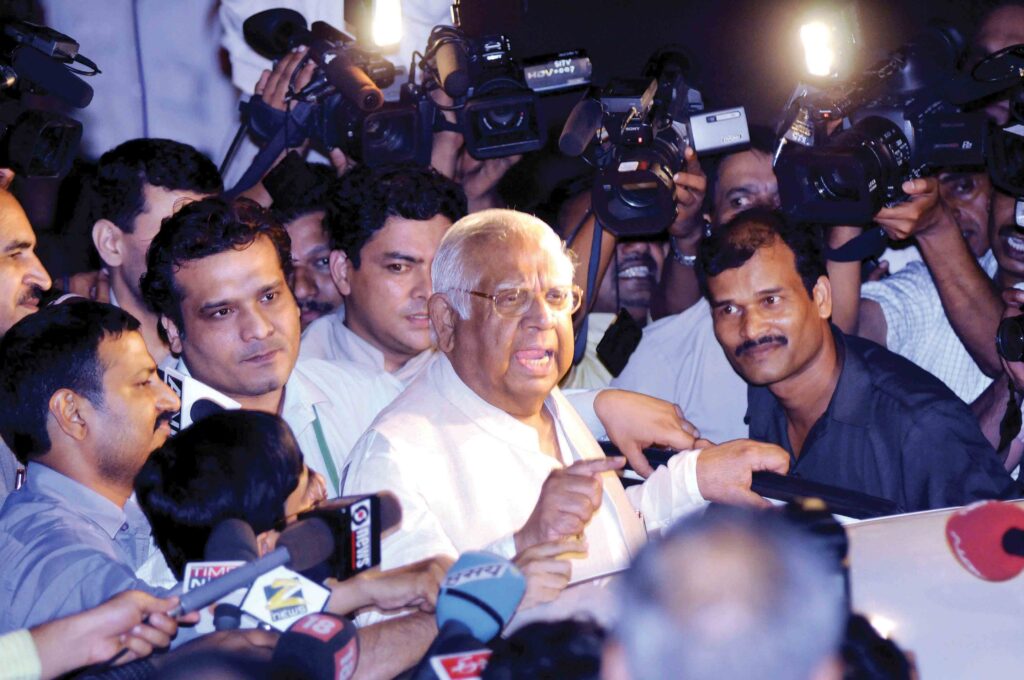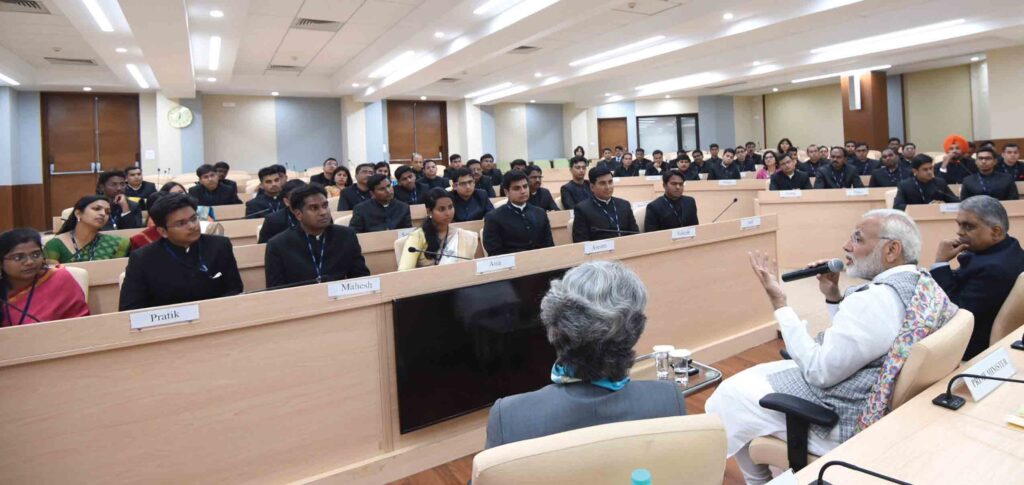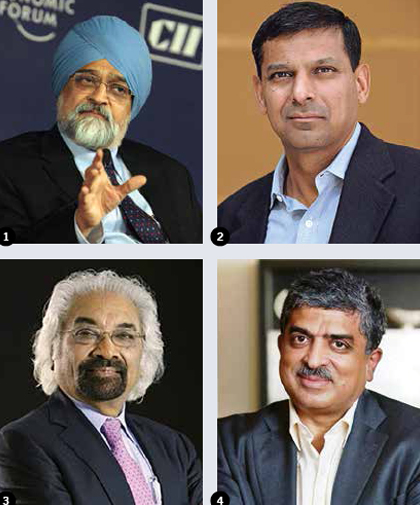THERE is a consensus among the scholars and public administration professionals that the Indian Civil Services in the state and union governments need an urgent overhaul. Hundreds of committees and commissions have addressed the issues in the past, and made considered recommendations, which have generally been overlooked by successive governments. The feeling is that politicians and even bureaucrats are not interested in such administrative reforms.
On May 17, various ministries and departments were asked to examine “if service allocation or cadre allocation to probationers selected on the basis of Civil Services examination be made after Foundation Course. Examine the feasibility of giving due weightage to the performance in the Foundation Course and making service allocation as well as cadre allocation based on the combines (sic) score.”
As is explicitly stated in the circulatory letter of the Department of Personnel and Training (DoPT), the idea did not originate from the department. We are told that the Prime Minister’s Office (PMO) asked for examining of the proposal. Since it has been desired by the highest authority of the land, it merits immediate examination.
However, instead of getting it examined by domain experts, it has been referred to all the departments, including telecommunications among others. The rationale is difficult to fathom. And to make it even more intriguing, it has been done in a very cryptic manner, without even mentioning the context, as if it was a routine matter of little significance. It appears that the issue has been conveyed in the form it was received. In my view, at least a short explanatory note on the subject should have been provided; elucidating the present position with possible ramifications should have been attached to the missile.
I believe that Civil Service reforms are not synonymous with sprucing up the civil servants. That’s the least part of it. Civil Service reforms should be seen as an integral component of administrative reforms and not isolated from them.

IT should also not be forgotten that good politics is essential for good governance. I remember Somnath Chatterjee, then Speaker of the Lok Sabha, saying at a national convention that good governance cannot be conceived without good politics. Now, let us assume that the present political executive unreservedly wants to initiate steps for good governance. Then, the first priority for effective reforms should be to ensure that the institutions deliver public goods to the citizens, rather than to tinker with the recruitment process of the primary delivery agents of public goods.

Another hypothesis of administrative reforms, according to us, is the emphasis on reforms on the demand side. It has been the practice of most political leaders to decide on reforms with a notion of being a guardian. It pre-supposes that the people in government are the best judge of the needs of the people. The concerns and aspirations of the people as felt by them are of no consequence, because it is presumed that the people do not know what is good for them.
IDEALLY, good administrative deci-sions should evolve through a process of negotiation between the state and the recipients of reforms. The wishes of the people could be ascertained through organised groups in the society. Therefore, any significant proposal for administrative reforms should be placed in the public domain for people’s responses. “Understanding the interplay between public institutions and the surrounding social context is fundamental to developing a reform strategy,” says a credible expert.
Most reforms in government fail. They fail not because once implemented, they yield unsatisfactory outcomes, but because, they never get past the implementation stage. Sometimes they fail because the wishes of the people have not been taken into consideration while making the decision.
What should be the approach to reforms often is more important than the content of the reform. What approach is likely to maximise the chances of success? One of the main determinants of the success is the leadership of change. Sometimes there is a perception of failure that causes the reform to fail.
Successful reforms require a combination of political commitment, technical capacity and gradual implementation, aided by high dedication of the civil servants. The commitment of the civil servants is essential for introducing any change in Civil Service. The leadership of change is, therefore, responsible for developing this dedication with repeated public announcements of respect and admiration for them.

SOME common challenges for Civil Service reforms include: enhancing capabilities for innovation and implementation; introducing ethical conduct in service delivery; developing transparency and accountability; and promoting responsiveness to people’s needs. Meeting these challenges requires strategic thinking and thoughtful training. At the turn of the century, the government of United Kingdom prepared a White Paper entitled “Modernising Government”. In this document, they identified seven areas for reforming in the British Civil Service, which seem equally apposite in the Indian case with minor variations. These were:
- More openness in the Civil Service.
- Greater efficiency and effective policy delivery.
- Better business planning.
- More women and ethnic minorities in senior Civil Service positions.
- Flexible pay and fast-track promotions to attract the best into the service.
- More extensive use of Information Technology.
- Better co-ordination of public services and policy-making.
Against this backdrop, the proposal to change the rules for allocating services and cadres to candidates who have cleared the Civil Services exams conducted by the Union Public Services Commission appears to be too trivial and knee jerk.
Alice in wonderland
by ALAM SRINIVAS
WHEN I, along with my boss, first met the late Dhirubhai Ambani, who was with his eldest son, Mukesh, over three decades ago, the Ambani patriarch excitedly explained how he could solve the India-Pakistan problem within months. “Make me the textile minister, and I will use manmade fibres (polyester and blends) to destroy Pakistan’s cotton sector. It will ruin the neighbour’s economy,” he said. Ironically, the meeting was in the waiting room in an office in the corridors of power. Alas, Dhirubhai never got the opportunity during his lifetime, at least not officially.
But you can! If you are interested in public policy, excited to change the lives of 1.3 billion people, and have out-of-the-box ideas, welcome to the Wonderland of Government of India. Recently, GoI took out an advertisement to recruit 10 “talented”, “motivated” and “outstanding” potential nation-builders to join it as Joint Secretaries. Don’t get disheartened by the designation. Even if you won’t be a minister, a JS is a “crucial level of senior management”, and leads “policy making as well as implementation of various programmes and schemes”.

However, this lateral induction of outsiders – from public sector to private one, MNCs to state-owned autonomous bodies, civil society to academia – sparked off debates among existing and retired civil servants. There is a lack of clarity about the status of the new Alices in Wonderland. Some feel that all government posts are cadre-based (i.e. the specific state cadre that a bureaucrat belongs to). Hence, “can a non-cadre or a non-member of AIS (All India Services) be appointed on cadre posts is a question of law”. Does it require an amendment to the AIS Act, 1951? Others contend that since JS comes from both AIS and CS, it “will not violate an established law”.
Other contentious issues are involved. When they retire, or resign, there is a cooling-off period for the civil servants, before they can pick up other jobs. This is clearly a safety clause – a bureaucrat can know a number of secrets, which can be useful to the corporate sector, even other governments. Will there be such rules for the new incoming-outsiders? If not, how will the government ensure secrecy? The tenure of the lateral entrants is three years, which can go up to five. This is sufficient period for a person to collect classified information that can benefit others.
In essence, this brings in the question of loyalty. Who will be these new JSs be faithful—to their old employers, the new ones after leaving GoI, or to the government? Imagine a senior manager from the Reliance Group, or Tata Group working for the government for five years, and immediately joining back his old employer. What if someone from the US revenue service joins the finance ministry, or from a powerful foreign think-tank joins the environment ministry? Both while in government service, and after it, who will she be devoted to? How can the government trust anyone?
At the end of the day, we will need to see who the new recruits will be – Indians, Non-Resident Indians, or foreigners? If they are Indians, which states and communities will they hail from?
Curiously, the reaction of the main opposition party came in great haste accusing the government of tampering with the UPSC structure in order to appoint officers of choice of the RSS in central services. There couldn’t have been a more absurd criticism of a plain legitimate statement. Others too joined the chorus. “Changes in allocation of services and cadres after the Foundation Course is a dangerous move by the PMO and must be nipped in the bud,” an elder politician said. “It is PMO’s move for a loyal bureaucracy,” said an eminent former civil servant.
Before going into the merits of the proposal, let me state that I fail to see any infirmity or perverse motive in initiating (either inter-ministerial or public) deliberation on the issue of how to select candidates best suited to various services and state cadres by refining the selection process for higher levels of the Civil Service. It might be untenable or may in the process lead to other better ideas on improving the existing system.
WHAT possible calamity can hit the country if a seemingly outlandish proposal is subjected to a thorough examination? Several commentators have jumped the gun in giving their verdict one way or the other, unmindful of its possible implications. In fact, I am glad that the idea has been shared with multiple disciplines, representing a variety of professions instead of being shoved down their throats with limited consultation.
As it is, the relative ranking, and therefore inter-se seniority, of those selected through UPSC examination for a particular All India Service (say IAS) undergoes minor changes on account of the assessment in the Foundation Course. Even the first position in the IAS has occasionally altered. Extending the argument further to determine the cadre within a particular service on the basis of final grading seems feasible, if not desirable.
The service allotment in an analogous manner, however, appears completely untenable. Different training institutions with diverse methods of assessment, risk of favouritism and eclectic groups of probationers are likely to generate avoidable antagonism among the probationers when we need equally intellectually intense and effectual civil servants in every service.
Besides, just think about the persons who have qualified through the most rigorous examination system being demoted to a lower position after the Foundation Course. I am not even talking about the obvious risks of questionable assessment by the authorities at the Lal Bhadur Shastri National Academy of Administration (LBSNAA) and other training institutions conducting the foundation programmes.
The examination of the PMO’s proposal notwithstanding, the moot question is why has this tinkering with a time-honoured process become relevant at this juncture. Another question is how it would result in better selection for various services than the present structure. Some see this proposal as another measure for demoralising civil servants at the policy making levels in government. They ask whether we haven’t done enough already in successive governments.
Hasn’t our efforts been to weaken the bureaucracy consistently.
Finally, we would like the Department of Personnel and Training to find answers to the following questions in the course of the examination of the proposal.
- Whether there is some urgency in tinkering with the established system without considering numerous recommendations of hundreds of committees and commissions?
- Is it likely to result in better selection for services?
- Is it part of a larger reform package or an isolated idea?
- Did any research paper produced by a think-tank associated with the ruling party form the basis of the present idea?
- Has the idea been considered in the past and rejected?
- Instead of simplifying things, why are we bent upon introducing more complications?
Endpoint: The difficulty with a proposal of reforms is that people do not appreciate that the problem is not to demonstrate whether it’s possible or not, but whether it’s going to work or not.
The writer is former Cabinet Secretary
Prabhat Kumar is an Indian Administrative Service officer of the 1963 batch, he served as the Cabinet Secretary of Government of India between 1998 and 2000. Upon creation of the State of Jharkhand in November 2000, he served as the first Governor.




























































